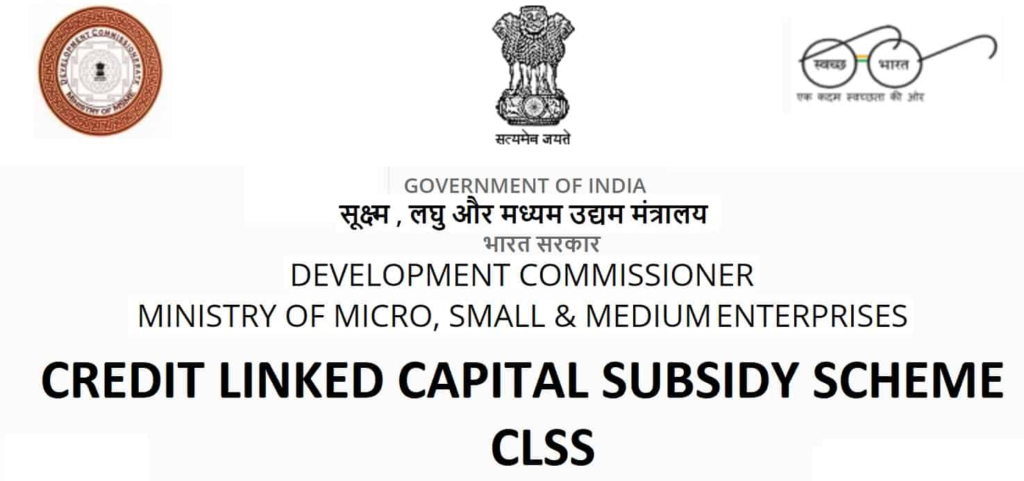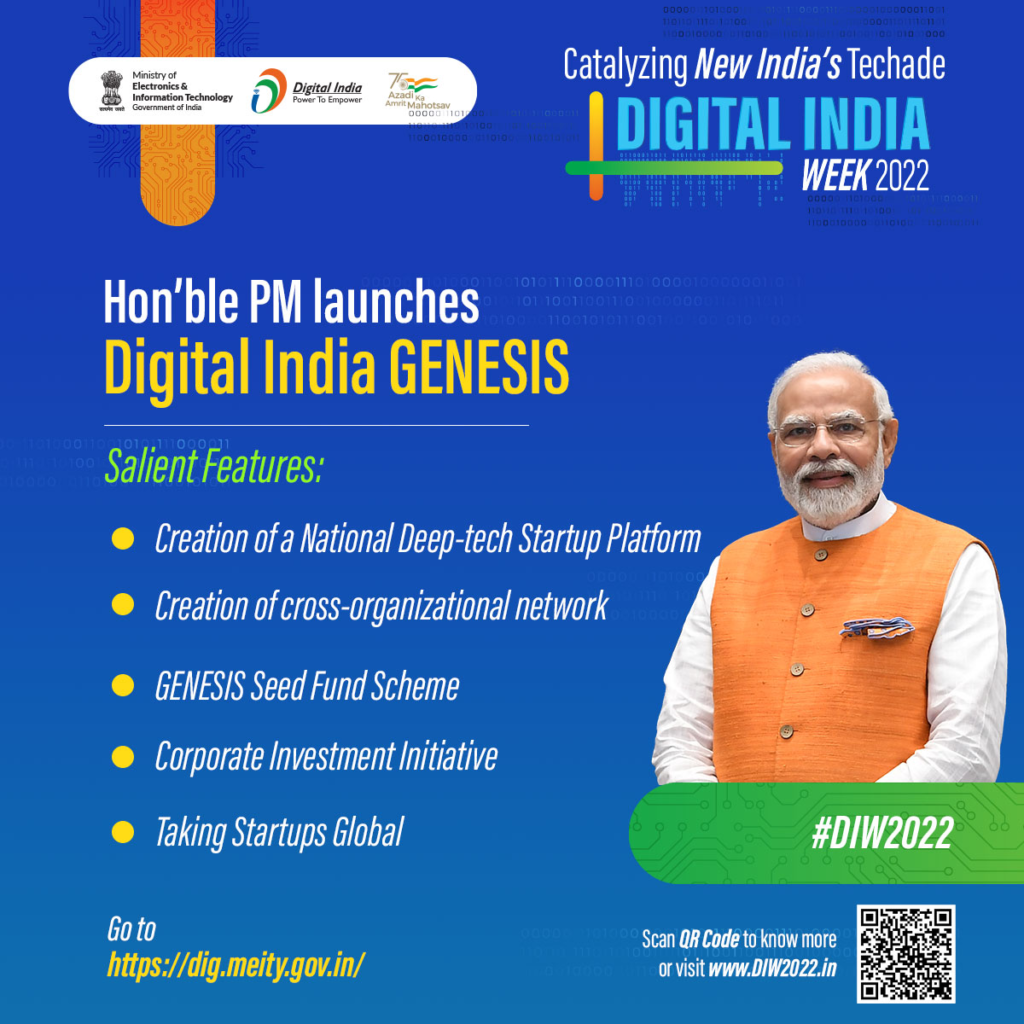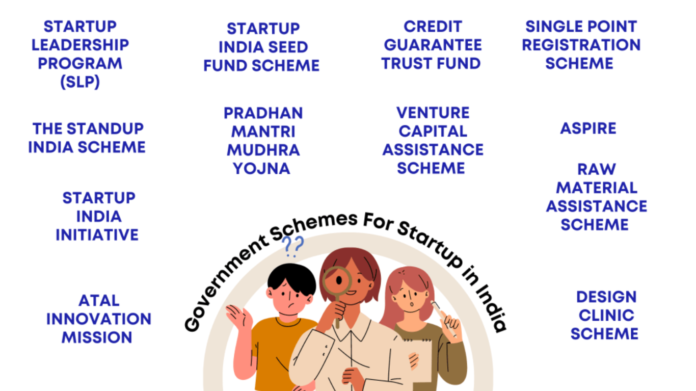This decade will likely be remembered as the decade of entrepreneurship in India. The nation’s startup industry is thriving, and the future looks extremely promising for business owners. India has one of the fastest-growing startup ecosystems in the world, and both the scale and significance of its companies are at all-time highs. Its expansion was made feasible by the Indian government’s continued support of startups through the provision of incentives. They have launched various government schemes for startups in India.
In the past few years, they have introduced a number of government programmes aimed at assisting entrepreneurs. The purpose of these plans and funds has been to cultivate an environment conducive to business growth.
Therefore, if you are an aspiring entrepreneur in India seeking to launch a business, you should be aware of this government schemes for startups and new businesses. This article will discuss the finest government schemes for startups in India, as well as their benefits.
- List of Government Schemes for Startups in India
- 1. Credit Linked Subsidy Scheme (CLCSS)
- 2. Digital India GENESIS
- 3. MSME Sustainable (ZED) Certification
- 4. The Multiplier Grants Scheme (MGS)
- 5. Startup Leadership Program (SLP)
- 6. ASPIRE (A Scheme for Promotion of Innovation, Rural Industries and Entrepreneurship)
- 7. Startup India Initiative
- 8. Startup India Seed Fund Scheme
- 9. Pradhan Mantri Mudhra Yojna
- 10. Atal Innovation Mission
- 11. Credit Guarantee Trust Fund
- 12. Venture Capital Assistance Scheme
- 13. The Standup India Scheme
- 14. Design Clinic Scheme
- 15. Raw Material Assistance Scheme
- 16. Single Point Registration Scheme
- Benefits of Government Schemes for Startups in India
- FAQs on Government Schemes for Startups in India
List of Government Schemes for Startups in India

The Indian government and the Ministry of Micro, Small, and Medium Enterprises have launched more than 15 initiatives to empower startups and MSMEs in India. In this article, we provide a list of 15 government schemes for startups in India that are designed specifically for firms and entrepreneurs seeking assistance.
1. Credit Linked Subsidy Scheme (CLCSS)

The Credit Linked Subsidy Scheme, also known as CLCSS, was introduced by the Government of India in the year 2000 in an effort to assist MSMEs in upgrading their technology in order to maximise their revenue generation. Due to a lack of funds, MSMEs are frequently compelled to utilise obsolete technology, which causes work delays. With the CLCSS initiative, however, MSMEs in rural and semi-urban regions of India can upgrade their existing apparatus and technology significantly.
This programme provides enterprises with up to a 15% subsidy on the purchase of specific machinery. The CLCSS initiative is open to all industries that have graduated from Small Scale to Medium Scale.
KYC Documents, Business Proof, Address Proof, an Aadhaar card, PAN or voter ID card, and a recent photograph are required for this programme.
2. Digital India GENESIS

Digital India GENESIS (Gen-next Support for Innovative Startups) is a Ministry of Electronic and Information Technology (MeitY) deep-tech startup platform initiative. It was introduced in 2015 with the intention of assisting tech businesses in Tier II and Tier III cities to expand their operations. The selected ten thousand startups will receive assistance for five years, as well as the proper instruments for scaling up. The Indian prime minister desired to maintain the technological ecosystem, transform India, and empower society.
3. MSME Sustainable (ZED) Certification

Government Schemes for Startups: MSME Sustainable (ZED) Certification
The Zero Defect and Zero Effect (ZED) Certification Scheme was launched with the intention of increasing MSMEs’ awareness of Zero Defect and Zero Effect (ZED). It consists of three certification levels, Bronze, Silver, and Gold, and is primarily based on the parameters of Quality, Safety, Production, Cleanliness, and others.
With this programme, the Indian prime minister hoped to encourage small and medium-sized enterprises to manufacture products mindful of their environmental impact. Under this government programme, both entrepreneurs and MSMEs will receive financial and technological assistance to ensure the absence of product defects. Currently, the government has provided approximately 7.43 crore INR under this programme.
4. The Multiplier Grants Scheme (MGS)

The Department of Electronics and Information Technology (DeitY) launched the Multiplier Grants Scheme (MGS) with the intention of bringing together industry and academic institutions. They desired to promote R&D collaboration for the creation of new products and packaging. This procedure would bolster the relationship between industries and institutes and expedite the creation of indigenous products and packaging.
The industry and the institution must submit a joint proposal to the government in order to receive financial assistance. Under this programme, the government will provide twice as much financial support as the private sector, but only if the R&D for the development of products and packages supported by the private sector can be commercialised at the institutional level.
5. Startup Leadership Program (SLP)

The Startup Leadership Programme (SLP) is a prestigious global training programme for innovators, leaders, and founders of the modern world who aspire to become startup CEOs. It is a non-profit educational programme that serves as a professional network for the next generation of business leaders and entrepreneurs. SLP in India is a six-month-long programme with a total of ten classes. It was founded in Boston in 2006 and introduced in India in 2016.
There is no age restriction, so anyone with a desire and interest in becoming a leader or entrepreneur can participate. This initiative has educated more than 3,900 individuals in more than 14 countries and assisted more than 2,000 enterprises.
6. ASPIRE (A Scheme for Promotion of Innovation, Rural Industries and Entrepreneurship)

The Government of India announced the ASPIRE Scheme in 2015 to improve the social and economic aspects of life in rural India, making it one of the most popular schemes ever launched by the Indian Government. This initiative, introduced by the Ministry of Micro, Small, and Medium Enterprises, facilitates the establishment of a network of technology centres and incubation centres to promote entrepreneurship and innovation in the agro-industry, as a significant portion of India’s population still depends on agriculture for their livelihood.
One of the primary goals of ASPIRE is to generate new employment opportunities in order to reduce unemployment and improve the competitiveness of Startups and the MSME sector. This initiative is open to all MSMEs with an Entrepreneurs Memorandum Registration.
7. Startup India Initiative

The Startup India Initiative is by far the largest government initiative in India for entrepreneurs. This scheme, initiated by Prime Minister Narendra Modi in 2016, includes over 50,000 enterprises.
It offers a vast assortment of e-books, courses, and mentorship programmes to promote leadership and abilities. Important advantages of this plan include:
- Tax exemption
- Cost reduction
- Easy business wind-up option in 90 days.
- Access to funds
- Self-certification under labor and environmental laws
- Fast-track patent registration with an 80% fee rebate.
Here are the eligibility requirements for this government venture funding:
- The startup should be a registered partnership firm, private limited company, or LLP.
- Turnover shouldn’t exceed 100 crores in any of the previous financial years.
- The startup must apply within ten years from the date of formation.
8. Startup India Seed Fund Scheme

The Startup India Seed Fund Scheme (SISFS) offers early-stage enterprises financial assistance for market entry, product trials, commercialization, prototype development, and proof of concept. This is one of the finest government funding programmes for startups in India.
The government has allocated 945 billion rupees for this programme. It anticipates providing funding to 3,600 entrepreneurs. Up to 20 lakh rupees will be allocated for the development of trials or prototypes. This initiative also seeks to promote innovation and national development.
Here are the eligibility requirements for this government venture programme.
- DPIIT must acknowledge the new venture.
- The product or concept must be scalable, technologically advanced, and practicable.
- Indian promoters must possess at least 51 percent of the shares.
- For this programme, the venture must apply within two years of its incorporation.
This government program’s unique selling proposition is that it is industry-agnostic and does not require physical incubation.
9. Pradhan Mantri Mudhra Yojna

PMMY is a programme designed to provide access to capital and loans to assist startups and MSMEs to sustain and grow their businesses. Initiated in 2015, eligible borrowers may receive loans of up to 10 lakhs for working capital needs. The loan repayment period for this programme is between five and seven years.
There are three loan categories available through the PMMY:
- Shishu – Up to 50,000
- Kishor -Up to 5 Lakhs
- Tarun – Between 5-10 Lakhs
To qualify for this programme, startups must be engaged in trading, manufacturing, services, or any other non-agricultural enterprise.
10. Atal Innovation Mission

This programme is part of a category of government programmes designed to promote entrepreneurship and innovation across the nation. This scheme focuses primarily on tier-2 and tier-3 cities.
This scheme, also known as AIM, provides a platform for promoting innovation centres of international calibre, sectoral focus, grand challenges, and talent initiatives. Innovation centres, Atal tinkering labs, community incubation centres, and innovation centres are essential components of this initiative.
In addition to providing businesses with financial support and resources, the programme facilitates access to information and resources.
11. Credit Guarantee Trust Fund

The Credit Guarantee Trust Fund For Micro & Small Enterprises (CGTMSE) offers collateral-free loans to micro, small, and medium-sized enterprises (MSMEs) and select entrepreneurs. The maximum quantity of these loans is INR 1,000,000. It benefits retailers, self-help organisations, educational institutions, small and medium-sized businesses, and farmers.
This programme facilitates the flow of credit in the startup sector and strengthens the delivery system for credit. The CGTMSE is predominantly for businesses in the service and manufacturing sectors. These loans can be claimed as either working capital or term loans.
12. Venture Capital Assistance Scheme

It is one of the most sought-after government programmes for agricultural enterprises. Entrepreneurs can obtain interest-free loans and OD under this programme. It enables them to cover their working capital requirements.
The primary emphasis of this programme is the expansion of the agro-industry. Under this programme, the government designated a fund of 10,000 billion rupees. This fund provides 2500 billion rupees in interest-free loans to small and marginal producers.
The advantages of this plan include:
- Overdraft facility and term loan
- Facilitate Agri-based venture setup
- Longer repayment period of up to 5 years.
- Helps startups set up an Agro business by arranging meets, visits, and training.
- Interest-free debt financing from financial institutes.
13. The Standup India Scheme

This is one of the few government schemes for startups that offers financial assistance in the form of loans to scheduled tribes (STs), scheduled castes (SCs), and women to encourage entrepreneurship.
The SIC, which was launched in 2016 by the prime minister, seeks to promote employment generation for backward castes and women, as well as entrepreneurial spirit in this section.
At least one SC or ST borrower and a female borrower will receive loans of up to INR 1 crore from banks. This programme offers a flexible loan repayment period of seven years. However, only first-time business owners are eligible to apply for this programme.
14. Design Clinic Scheme

The Indian government desires that every startup and micro, small, and medium-sized enterprise develop a design-centric business strategy. This programme was established by the Ministry of Small and Medium-Sized Enterprises (MSME) in an effort to encourage the exploration of innovative designs.
It seeks to promote a sustainable design ecosystem through continuous skill development and training. Under this programme, the government will provide up to INR 60,000 for participation in design seminars and up to INR 3.75 lakhs to the startup for hosting the seminar.
The goal of this programme is for entrepreneurs to learn the most recent design trends and best practises and to network with peers.
15. Raw Material Assistance Scheme

National Small Industries Corporation (NSIC) initiated this government programme for new businesses in India. It intends to aid manufacturers and entrepreneurs in the procurement of raw materials. Under this programme, applicants are eligible for low-interest loans and financial assistance to acquire basic materials.
16. Single Point Registration Scheme

This government programme offers startups and MSMEs a centralised mechanism for submitting bids. It is managed by the National Small Business Administration.
The purpose of this programme is to reduce restrictions for entrepreneurs seeking government contracts. SRPS reduces the time, cost, and requirements associated with government procurement participation. However, the venture must not have been incorporated for more than a year in order to qualify for this programme.
Benefits of Government Schemes for Startups in India
While each Indian government startup programme has its own benefits, they all share certain advantages. Here are the principal advantages of government startup programmes in India.
- Financial assistance
- Facilitate funding
- Provide collateral-free loans
- Offer mentorship
- Tax exemptions
- Networking opportunities
- Easy access to vital resources
FAQs on Government Schemes for Startups in India
The frequently asked questions on Government Schemes for Startups in India are given below:
How to get money from government for startup?
Pradhan Mantri Mudhra Yojna is a programme designed to provide access to capital and loans to assist startups and MSMEs to sustain and grow their businesses. Initiated in 2015, eligible borrowers may receive loans of up to 10 lakhs for working capital needs. The loan repayment period for this programme is between five and seven years.
There are three loan categories available through the PMMY:
- Shishu – Up to 50,000
- Kishor -Up to 5 Lakhs
- Tarun – Between 5-10 Lakhs
To qualify for this programme, startups must be engaged in trading, manufacturing, services, or any other non-agricultural enterprise.
Does government give money for startups?
The Startup India Seed Fund Scheme (SISFS) offers early-stage enterprises financial assistance for market entry, product trials, commercialization, prototype development, and proof of concept. This is one of the finest government funding programmes for startups in India.
What is the ATAL Innovation Mission?
The Atal Innovation Mission is a government programme that seeks to promote innovation and entrepreneurship in India, and it is one of the best government grants and programmes in the development of entrepreneurship. The Indian government offers a number of programmes and initiatives to assist Indian businesses, including Atal Incubation Centres, Atal Tinkering Labs, and Atal New India Challenges. Depending on the programme, the eligibility requirements and application procedure may vary; therefore, it is essential to read the guidelines thoroughly before applying.
Who are eligible for the startup India scheme?
To qualify for the Startup India initiative, the startup must be a registered partnership, private limited company, or limited liability partnership (LLP). In addition, its annual revenue should not have exceeded 100 billion rupees in previous fiscal years. Additionally, the startup must register within ten years of its formation.
Do startups need GST?
New businesses must register for GST. However, startups are free from GST registration if their yearly revenue is less than INR 40 lakhs.


